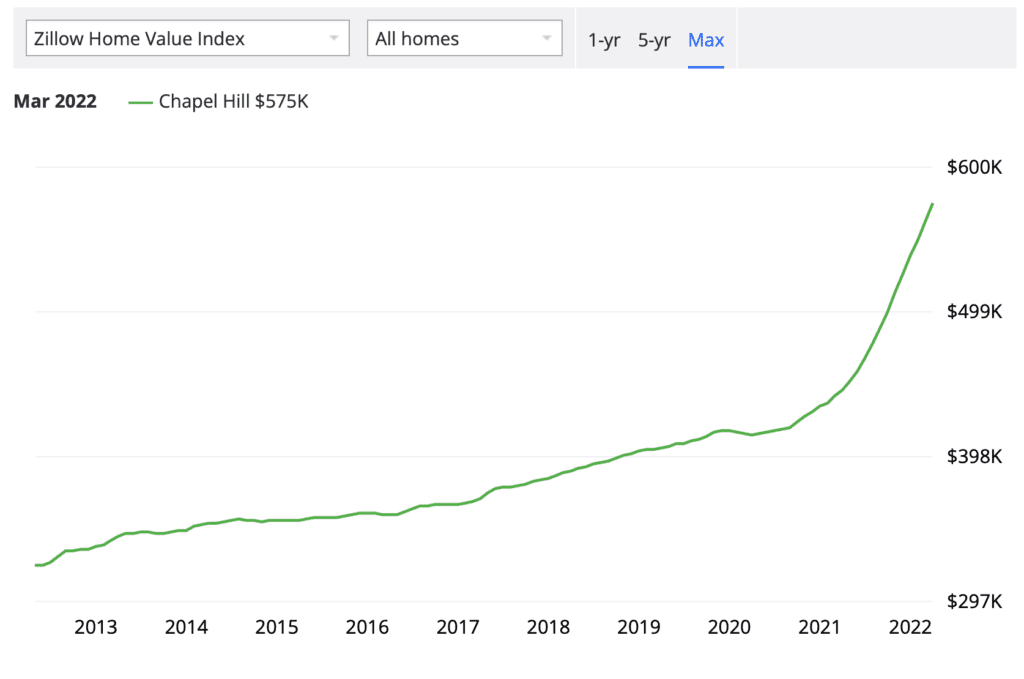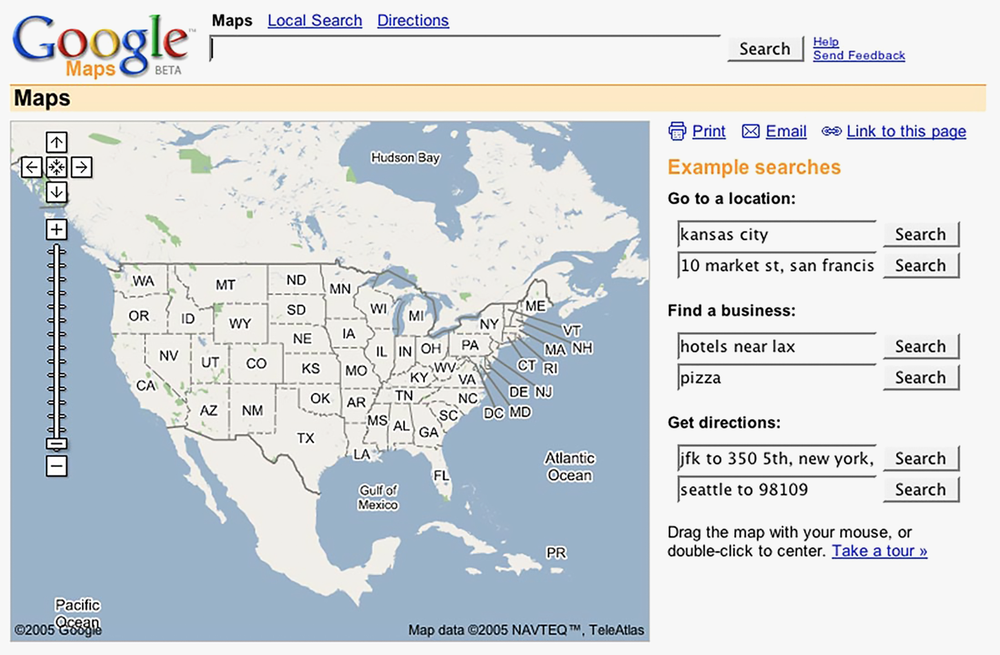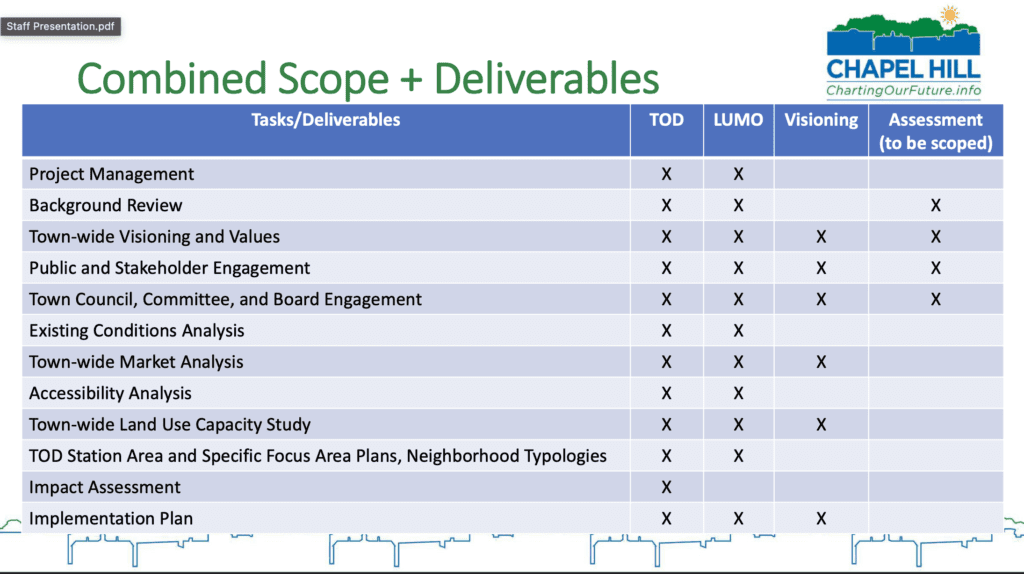Zoning reform matters for housing affordability, racial equity, environmental sustainability, and economic growth. The Chapel Hill Town Council should be moving faster on reform, not discussing ways to slow it down.
Last week, the Chapel Hill Town Council held a work session where they discussed, among other things, the town’s plans to rewrite its land use ordinances, or, as it is commonly called, zoning. Zoning reform involves changing the rules about what we can build and where. In the 20th century, local governments used zoning to enforce racial segregation, encourage car dependency, and hasten the demise of neighborhood business districts. In the 21st century, an increasing number of economists, environmentalists, and public health professionals have identified zoning reform as one of the key strategies to address climate change, reduce racial disparities, and improve economic growth. In addition, by making it easier to build housing, zoning reform helps stabilize home prices (which are at record highs right now).

Given the rapid rise in housing prices in Chapel Hill, the town’s recently adopted Climate Action and Response Plan, and our need to help business owners recover from the pandemic, zoning reform should be an urgent matter for our town council. Instead, here is what our process, which is colloquially called the LUMO (Land Use Management Ordinance) rewrite, looks like:

This five-year process (2021-2025) comes after a four-year process (2017-2020) in which Chapel Hill tasked consultants to create a Future Land Use Map (FLUM) that was intended to guide the rewrite of our zoning codes. Five years earlier (2012), the Council adopted another comprehensive plan (Chapel Hill 2020, which they started working on in 2009), but didn’t reform its land use ordinances, which haven’t been substantially changed since 2003. To put it another way, the last time we changed our zoning, Google Maps didn’t even exist.

One would think that nine years—or, if you include the earlier comprehensive plans, seventeen years— would be enough to reform our zoning codes. Bloomington, Indiana, a college town that’s very similar to Chapel Hill, reformed its zoning in just four years (2018-2021). Instead, the town council last week seemed amiable to delaying the process further to accommodate a “visioning” study that the town wants to complete this summer. The town helpfully prepared this chart, showing all the areas in which this new study will duplicate work that’s already underway (Note, in addition to the LUMO, the town is studying Transit Oriented Development as part of its application for a Bus Rapid Transit line that will run from the Eubanks Park and Ride to Southern Village. The town received federal funding to conduct this necessary work as part of its grant application, and combined it with the LUMO rewrite to signal that the town is taking the project seriously. Last week’s discussions cast doubt on their commitments):

Several new council members commented that they were not as familiar with the LUMO rewrite as they would like to be, while others, including those who were in office when the earlier FLUM study was commissioned, expressed support for further delaying the LUMO rewrite. Such delaying tactics are commonly used when one is trying to uphold the status quo, which has greatly enriched property owners in Chapel Hill at the expense of renters, economic growth, and the environment.
If the new town council members want to address housing affordability, climate change, racial disparities, and other issues that were widely discussed in last fall’s campaign, they need to press for an expedited timeline to change our zoning. In the meantime, the council could support simple reforms that have worked in other communities, including abolishing parking minimums, permitting ADUs everywhere, and reducing minimum lot sizes. While no single policy change will address all of our problems, making these small changes now will demonstrate that the council actually wants to make our community a more welcoming, economically vibrant, and environmentally responsible place. To sit by while consultants conduct study after study is a decision to do effectively nothing.
